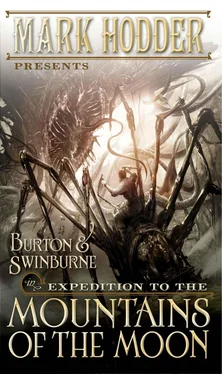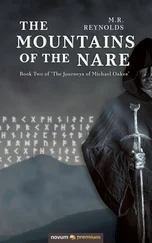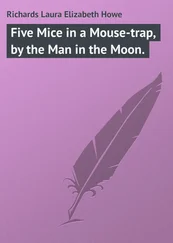Mark Hodder - Expedition to the Mountains of the Moon
Здесь есть возможность читать онлайн «Mark Hodder - Expedition to the Mountains of the Moon» весь текст электронной книги совершенно бесплатно (целиком полную версию без сокращений). В некоторых случаях можно слушать аудио, скачать через торрент в формате fb2 и присутствует краткое содержание. Жанр: sf_stimpank, на английском языке. Описание произведения, (предисловие) а так же отзывы посетителей доступны на портале библиотеки ЛибКат.
- Название:Expedition to the Mountains of the Moon
- Автор:
- Жанр:
- Год:неизвестен
- ISBN:нет данных
- Рейтинг книги:5 / 5. Голосов: 1
-
Избранное:Добавить в избранное
- Отзывы:
-
Ваша оценка:
- 100
- 1
- 2
- 3
- 4
- 5
Expedition to the Mountains of the Moon: краткое содержание, описание и аннотация
Предлагаем к чтению аннотацию, описание, краткое содержание или предисловие (зависит от того, что написал сам автор книги «Expedition to the Mountains of the Moon»). Если вы не нашли необходимую информацию о книге — напишите в комментариях, мы постараемся отыскать её.
Expedition to the Mountains of the Moon — читать онлайн бесплатно полную книгу (весь текст) целиком
Ниже представлен текст книги, разбитый по страницам. Система сохранения места последней прочитанной страницы, позволяет с удобством читать онлайн бесплатно книгу «Expedition to the Mountains of the Moon», без необходимости каждый раз заново искать на чём Вы остановились. Поставьте закладку, и сможете в любой момент перейти на страницу, на которой закончили чтение.
Интервал:
Закладка:
Later, he said to Swinburne, “Time is not the same in Africa as it is in Europe. The people here have an entirely different conception of it.”
“Perhaps they are rather more poetical,” Swinburne replied.
“What do you mean?”
“Maybe they measure time not by the beat of a second or minute or hour, but by the intensity of their reactions to a thing. If they feel very disgruntled by Speke's expedition, that means it was here not long ago. If they feel mildly irritated, but they remember that they were more annoyed before, then a greater amount of time must have passed. And if they feel fine, but recall once being upset, then obviously the reason for it occurred long ago.”
“I never considered it that way,” Burton confessed. “I think you might be on to something.”
“Not that it helps much,” his assistant noted. “We still can't establish when Speke was here. How much easier it would be if old Goha could tell us, ‘Five o'clock last Sunday afternoon!’” He looked puzzled, and continued, “I say, Richard! What's the confounded day, anyway? I haven't a giddy clue!”
Burton shrugged. “Nor have I. I've haven't noted the date in my journal since-” He paused, then stretched out his arms. “This long ago.”
They left Ziwa, trudged across broad, rolling savannahs, and climbed onto the tableland of the Ugogo region. From here, they could see in the distance to their rear, crowned with mist and cut through by streaks of purple, the pale azure mountains of Usagara. In front, in the west, the terrain sank into a wide tract of brown bushland, dotted with grotesquely twisted calabash trees through which herds of elephants roamed, then rose to a range of rough hills. South and northward, verdure-crowned rocks thrust up from an uneven plain.
The villages they encountered, as they traversed this country, were inhabited by the Wagogo people, who, not having suffered as much the decimating attentions of slavers, demonstrated less timidity and a greater degree of curiosity. They turned out of their settlements in droves to watch the wakongo -the travellers-passing by, and cried out: “Wow! Wow! These must be the good men who are chasing the bad ones! Catch them, Murungwana Sana of Many Tongues, for they killed our cattle and chased us from our homes!”
However, while the people in general appeared to regard Burton's safari as a force bent on vengeance for the crimes committed by Speke's, the village elders with whom the explorer spoke proved rather more suspicious. “What will happen to us,” they asked, “when your people take the land?”
To this question, Burton had no reply, but it caused him more and more to think of Palmerston.
They will be accorded the rights given to all of our citizens.
The explorer felt increasingly uneasy.
They stopped for a day at a settlement called Kifukuru, the first where the Kinyamwezi language was spoken, rather than Kiswahili.
Swinburne entertained its inhabitants with a poetry reading. They didn't understand a word of it, of course, but they laughed uproariously at his odd twitches and hops, his jerky gestures and exaggerated facial expressions, and, for some obscure reason, they attached themselves to a stanza from “A Marching Song,” and demanded that he repeat it over and over:
Whither we know, and whence,
And dare not care wherethrough.
Desires that urge the sense,
Fears changing old with new,
Perils and pains beset the ways we press into.
Something about the first line of this caused the audience great merriment-perhaps its rhythm, or the sound of the words-and throughout the rest of the day, the diminutive poet was followed everywhere by hordes of children, who chanted, “Widdawenow! Anwense! Andah! Notkah! Wedru!”
“My hat, Richard!” he exclaimed. “I feel like the blessed Pied Piper of Hamelin! Aren't these little scamps marvellous, though?”
“They're the future, Algy!” Burton replied, and was instantly stricken by an incomprehensible sadness.
The next morning, the expedition took up its baggage and moved on, and Burton carried with him a growing depression and irritability. It was obvious to the others that he was lost in thought. He sat on his mule with his dark eyes smouldering, and his jaw, hidden behind a long bushy beard, set hard.
The rainy season had ended now and the plain, clothed in long ossifying grass, was already a mosaic of deep cracks. It took them two days to cross it, during which time Burton spoke little, then they chopped their way through a jungle and emerged into a ten-mile-wide clearing. Here, a powerful Wagogo chief named Magomba, who'd caused problems for Burton in '57, did so again by demanding that hongo be paid not just for the explorer's expedition but also for Speke's, which had forced its way with violence through the area. Reparation was also demanded for seven men killed by the Prussian forces.
Magomba was jet black in colour and his skin was crisscrossed with thousands of fine wrinkles. From the back and sides of his half-bald head, a few straggly corkscrews of grey hair depended; the whites of his eyes were actually yellow; and his filed teeth were brown. Brass rings dragged his earlobes down to his shoulders.
He squatted, all bones and joints, on a stool in his village's bandani , chewed constantly at a quid of tobacco, and expectorated without mercy.
Burton and Said bin Salim sat cross-legged before him.
“There was uchawi -black magic,” Magomba said. “And I will not have uchawi in my land.”
“What happened, O Magomba?” Burton asked. “Explain to me.”
“One of thy people-”
“Not mine!” Burton interrupted. “They are the enemy of my people!”
“One of thy people took a man by the neck and shook him until he dropped to the ground. The next morning, the man had turned into a tree. We had to cut off his head and burn him. Now, listen carefully whilst I tell thee of the tax thou must pay in order to pass through my domain.”
Magomba's demands were extortionate. Burton and Said spent the entire afternoon haggling, and eventually paid ten patterned cloths, six coils of brass wire, seven blue cottons, a pocket watch, twenty-five brass buttons, four boxes of beads, a quarter of tobacco, and a bottle of port.
“Good,” Magomba said. “Now I shall order a calf killed so that thy people may eat. It is good to see thee again, Murungwana Sana. Ever hast thou been my favourite of all the foul devils that plague this unhappy land.”
The next morning, as the expedition prepared for departure, the old chief confronted Burton and said, “I have had the blue cottons counted. There are only seven rolls.”
“It is what we agreed.”
“No. Thou promised nine.”
“You art mistaken. We said seven, and seven it is.”
“I will accept eight, providing thou swears an oath.”
“What oath?”
“Thou must give thy word not to strike my land with drought, nor with disease, nor with misfortune.”
“Eight it is, then. And I swear.”
Burton's porters hacked a route through the bordering jungle. The explorer led his people out of the clearing and, eventually, up into the hills and onto the glaring white plains of the Kanyenye region. Though the going was easier here, the heat was hellish and pertinacious gadflies assailed them all. The Daughters of Al-Manat had trouble controlling their horses, which constantly shied under the onslaught, and the pack mules bucked and kicked and shed their loads. As the ground gradually rose and became rockier, the expedition also suffered from a want of water, having used up their supply more rapidly than usual.
They started across rolling, very uneven ground, congested with gorse-like bushes and deeply pocked with holes and crevices.
Читать дальшеИнтервал:
Закладка:
Похожие книги на «Expedition to the Mountains of the Moon»
Представляем Вашему вниманию похожие книги на «Expedition to the Mountains of the Moon» списком для выбора. Мы отобрали схожую по названию и смыслу литературу в надежде предоставить читателям больше вариантов отыскать новые, интересные, ещё непрочитанные произведения.
Обсуждение, отзывы о книге «Expedition to the Mountains of the Moon» и просто собственные мнения читателей. Оставьте ваши комментарии, напишите, что Вы думаете о произведении, его смысле или главных героях. Укажите что конкретно понравилось, а что нет, и почему Вы так считаете.












